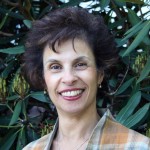 ‘Belief’ lies at the core of E.B. Tylor’s canonical definition of religion as belief in ‘spiritual beings’. However, in the last decades of the twentieth century the concept became unfashionable in the social sciences, with scholars from all parts of the world denouncing its centrality as a Western, Protestant bias which has limited application to other religions. In recent years, however, there has been something of a resurgence of interest in ‘belief’ and Chris recently attended an international symposium entitled “What does it mean to believe?” at the University of Kent, Canterbury, UK, organised by Dr Abby Day, and the British Council. At this symposium, Professor Ariela Keysar presented a paper entitled “What does ‘belief’ mean to Americans?”, and later on discussed the content of this paper with Chris for this podcast.
‘Belief’ lies at the core of E.B. Tylor’s canonical definition of religion as belief in ‘spiritual beings’. However, in the last decades of the twentieth century the concept became unfashionable in the social sciences, with scholars from all parts of the world denouncing its centrality as a Western, Protestant bias which has limited application to other religions. In recent years, however, there has been something of a resurgence of interest in ‘belief’ and Chris recently attended an international symposium entitled “What does it mean to believe?” at the University of Kent, Canterbury, UK, organised by Dr Abby Day, and the British Council. At this symposium, Professor Ariela Keysar presented a paper entitled “What does ‘belief’ mean to Americans?”, and later on discussed the content of this paper with Chris for this podcast.
Podcast: Play in new window | Download | Embed
Subscribe: RSS
You can also download this interview, and subscribe to receive our weekly podcast, on iTunes. And if you enjoyed it, please take a moment to rate us.
In his keynote address, right at the very start of the symposium, Gordon Lynch raised what he dubbed the erroneous assumption prevalent throughout much of social science that belief is universal, consistent and articulate-able. As Keysar’s data from a number of large-scale, quantitative studies shows, belief changes over time; it is situational, practical, functional, generational; it varies geographically; it varies across and within religious traditions; it has meaning outwith religion, and may be meaningless within; beliefs about the meaning of life may play very little role in daily life.
Listeners may be interested in the following excellent resources mentioned in the podcast which are freely available online:
- The Results of the American Religious Identification Survey (ARIS) 2008
- American Nones: The Profile of the No Religion Population
- International Survey, Worldviews and Opinions of Scientists: India 2007-08
Dr. Ariela Keysar, a demographer, is Associate Research Professor of Public Policy and Law and the Associate Director of the Institute for the Study of Secularism in Society and Culture (ISSSC) at Trinity College in Hartford, Connecticut. She was a principal investigator of the American Religious Identification Survey 2008, the largest survey of religion in the U.S., covering over 50,000 respondents. She was also a principal investigator of the ISSSC web survey of Indian scientists, which is the first in a series of studies of worldviews and opinions of scientists around the world. Ariela Keysar was the study director of the American Jewish Identity Survey 2001 and the associate director of the Longitudinal Study of Young Adults Raised in Conservative Synagogues 1995-2003.
Dr. Keysar is the co-editor of most recently: Secularism, Women & The State: The Mediterranean World in the 21st Century; also Secularism and Science in the 21st Century and Secularism & Secularity: Contemporary International Perspectives as well as co-author of Religion in a Free Market and The Next Generation: Jewish Children and Adolescents.
Listeners may also be interested in our interview with Callum Brown, who is also looking at large-scale surveys, and our roundtable discussion on the issue of using such surveys for research purposes.





